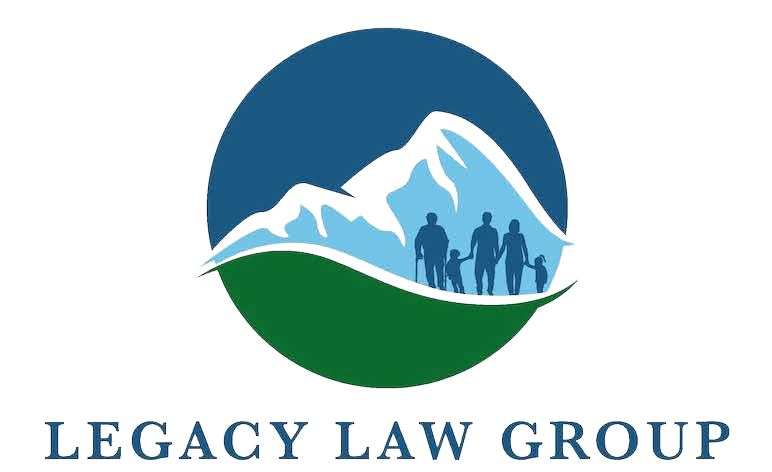ASSET PROTECTION PLANNING
ASSET PROTECTION PLANNING
Divorce, inheritance, health issues, creditors, employees, theft, changing markets, malpractice suits, sexual harassment claims, natural disasters and disgruntled business partners are just a few issues that can result in devastating lawsuits for unprepared business owners. The highest level of risk falls on those who think they are immune. Americans are now more concerned than ever about protecting their assets from creditor claims, taxes, divorce and other disasters. Rightly so. The more success you have (especially in business, professional practice or real estate activities), the more at risk you are as others see your success grow.
HERE’S SOME OF THE “RISKY BEHAVIOR” YOU
MAY BE ENGAGING IN RIGHT NOW:
Will you be signing loan documents, a personal guarantee or a lease? Do you have rental properties or employees? Are you an attorney or physician? Do you work in construction or perform professional services? Are you getting married and have children from a prior marriage or separate property assets you are bringing into the marriage. Here’s the thing: all of these activities are activities we want to see you do more of! They are, in many ways, the spice of life. But we don’t want that spice to become too hot and impact your life negatively. That’s where we come in. We can set up your business and life structures to ensure that you can take maximum risk with minimum worry.

HELP?
We assist our clients in determining the appropriate level of asset protection planning for their particular circumstances. We will consider insurance, prenuptial agreements, asset segregation, choice of jurisdiction, gifting, LLCs, partnerships, corporations, and asset protection trusts. Customized combinations are layered depending on the needs of the client and as appropriate. There are many different strategies to accomplish the protection of your assets while you are alive and after you are gone. To find out which strategies may be right for you, contact us for a Family Wealth Planning Session.
WHAT IS A REVOCABLE
LIVING TRUST?
This is an agreement with three parties: the Trust-makers, the Trustees (or Trust Managers), and the Trust Beneficiaries. For example, a husband and wife may name themselves all three parties to create their trust, manage all the assets transferred to the trust, and have full use and enjoyment of all the trust assets as beneficiaries. Further “back-up” managers can step in under the terms of the trust to manage the assets should the couple become incapacitated or die. Special provisions in the trust also control the management and distribution of assets to heirs in the event of the trust maker’s death. With proper planning, the couple also can avoid or eliminate death taxes on their estate. The Revocable Living Trust may allow them to accomplish all this outside of any court proceedings.
Whether you are young or old, rich or poor, married or single, if you own titled assets such as a house and want your loved ones to avoid court interference at your death or incapacity, consider a revocable living trust. A trust allows you to bring all of your assets together under one plan.
WHAT IS A LIVING WILL?
Sometimes called an Advance Medical Directive, a living will allows you to state your wishes in advance regarding what types of medical life support measures you prefer to have, or have withheld/withdrawn if you are in a terminal condition (without reasonable hope of recovery) and cannot express our wishes yourself. Oftentimes a living will is executed along with a Durable Power of Attorney for Health care, which gives someone legal authority to make your health care decisions when you are unable to do so yourself.
What does Intestacy mean?
If you die without even a Will (intestate), the legislature of your state has already determined who will inherit our assets and when they will inherit them. You may not agree with their plan, but roughly 70 percent of Americans currently use it.
WHAT IS A WILL?
The document a person signs to provide for the orderly disposition of assets after death. Wills do not avoid probate. Wills have no legal authority until the willmaker dies and the original will is delivered to the Probate Court. Still, everyone with minor children needs a will. It is the only way to appoint the new “parent” of an orphaned child. Special testamentary trust provisions in a will can provide for the management and distribution of assets for your heirs. Additionally. assets can be arranged and coordinated with provisions of the testamentary trusts to avoid death taxes.
HOW ARE WE DIFFERENT?
At Legacy Law Group, we believe in building lasting relationships with our clients. That’s why we offer a free assessment of your current estate plan every 3 years. Our commitment of keeping your plan up-to-date assures that it aligns with your evolving needs and circumstances, providing you with ongoing peace of mind.
WHAT IS INCLUDED IN AN ESTATE PLAN?
Legacy Law Group offers three levels of planning to suit your varying needs, and you get to choose the level of planning that best fits your family. From starter plans designed primarily for families with young children and not yet much in the way of financial wealth, to more robust plans for well-established families concerned with matters of asset protection, preservation and increased growth, we have you covered. When we meet for your Family Wealth Planning Session, we will review our three planning levels with you, and you will choose our own fee based on your budget and the planning options that are most important to you and your family.
WHAT IS THE DIFFERENCE BETWEEN A
WILL & A TRUST?
Wills and trusts are two of the most commonly used estate planning documents, and they form the foundation of most estate plans. While both documents are legal vehicles designed to distribute your assets to your loved ones upon your death, the way in which they work is quite different
REACH OUT TO OUR TEAM

Learn More About Anastasia
Anastasia FainbergAttorney at Law
















